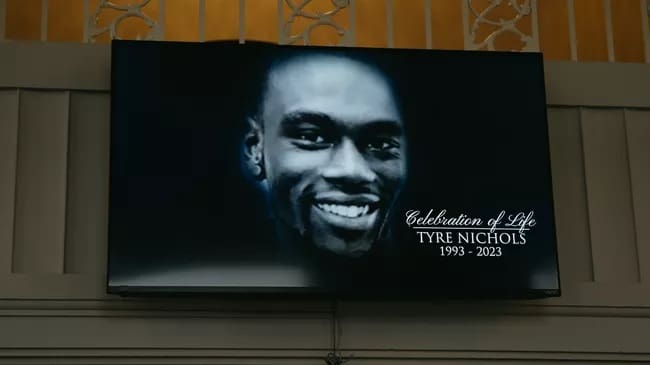Black Voices: News, Culture & Community from Across the Nation
Due to their frequent exposure to danger, police officers may justify what appears to be excessive force if they feared for their lives. However, Michael Sierra-Arévalo, a sociologist at the University of Texas at Austin, argued that while it is not unconstitutional for police officers to believe that someone will hurt them, that presumption can lead to unconstitutional behavior and justifications for it.
When police officers are put on trial because their actions resulted in the death of a suspect, defense attorneys will emphasize the threat to the officer’s life to explain why excessive force was required. But what if the situation was not life-threatening, and the officer’s “fear for life” assertion was unfounded? Instead of demonstrating reasonable doubt, defense attorneys will persuade the jury to give the police the benefit of the doubt.
An all-White jury recently gave the benefit of the doubt to three former Memphis police officers accused of beating to death Tyre Nichols, a 29-year-old Black man, during a traffic stop in 2023. The all-White jury acquitted the former cops of second-degree murder, aggravated assault, and inappropriate use of official authority. When accused of murdering a Black man, an all-White jury is expected to find police officers not guilty, but this case was unusual in that the three officers acquitted were Black rather than White.
The Nichols beating was carried out by five Black police officers from the SCORPION unit (Street Crimes Operations to Restore Peace in Our Neighborhoods).
Police stopped Nichols for reckless driving on the day of the incident. (The Memphis police chief examined footage from a pole-mounted camera and discovered no probable cause for the traffic stop.) Nichols was pulled out of his car, pepper sprayed, and then tasered. (Disciplinary hearing documents show that Nichols was never informed why he was pulled over or that he was being arrested.)
Nichols ran from the officers, but the officers caught him.
The officers punched, kicked, and hit him with a baton. (CNN reported that video footage of the altercation shows officers repeatedly threatening Nichols with violence, even when he appeared to be following their orders or was already on the ground.)
The Memphis Police Department fired all five officers for violating department policies and permanently disbanded the SCORPION unit. The state then filed criminal charges against the five officers. Before the state trial, the federal government charged the five officers with violating the deceased’s civil rights. During the federal hearing, two of the five policemen agreed to plead guilty to both federal and state charges. The remaining three officers were convicted of federal offenses.
At the state trial, the defense attorneys for the three officers who pleaded not guilty persuaded the judge that their clients would not receive a fair trial from a local jury. The judge concluded that a local jury could not be impartial given the amount of video of the incident that had been shown on the news and the widespread impression among local residents that the SCORPION unit routinely engaged in misconduct.
According to the Associated Press, the trial had “an out-of-town jury from a majority-White county.”
The prosecution believed that the video footage of Nichols being beaten, along with testimony from one of the police officers who pleaded guilty, was sufficient to secure a conviction. The defense blamed the officers who pleaded guilty for the blows that killed Nichols, but the prosecution countered by demonstrating that the defendants took part in the violence and urged the other two to beat Nichols.
The defense transferred blame to the victim, alleging that if Nichols had cooperated and allowed himself to be handcuffed, he would still be alive. Then they urged the jury to give the defendants the benefit of the doubt.
The defense told the jury that the videos didn’t reflect the reality of what happened and the intense pressure the officers faced. They argued, “These cops serve in the most dangerous unit in the most dangerous city within the United States. [These officers] are doing a job that none of us here have the guts to do, to keep us safe.”
They called a use-of-force expert, who testified that the three officers followed police department procedures and law enforcement standards. The defense next informed jurors that a guilty verdict would hinder law enforcement’s ability to aggressively pursue suspects in a dangerous city.
The defense persuaded the all-White jury that it was reasonable to give three Black men charged with second-degree murder the benefit of the doubt and declare them not guilty.
Following the acquittal, Dr. Earle Fisher, senior pastor of Memphis’ Abyssinian Baptist Church, stated that the trial was a new experience for him because he had never witnessed an all-White jury attempt to humanize three Black men who were defendants in a murder case. Fisher believed the only reason the jury was able to humanize the Black defendants was because they were police officers.
The pastor was mistaken.
By granting them the benefit of the doubt, the jury failed to humanize them. What they actually concluded was that it requires N-words to police N-words, and this all-White presumption led to justifying the excessive force that caused the death of Nichols.
About Post Author
Read the full article on the original publication


